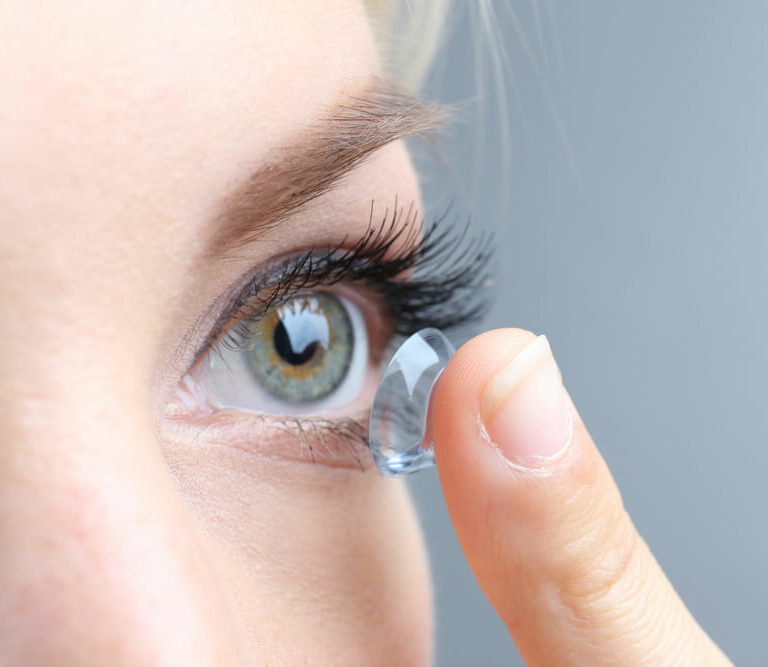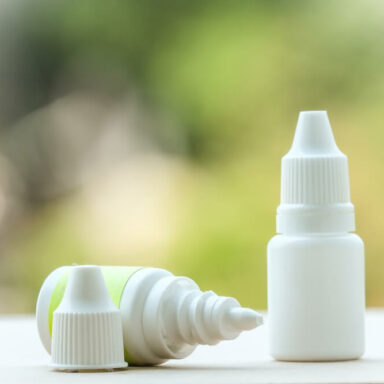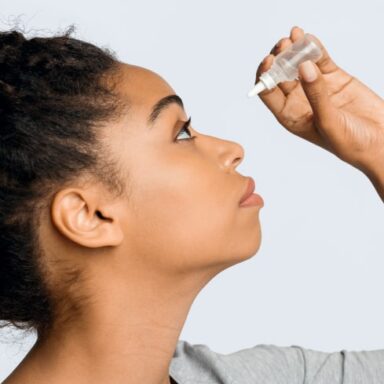Contact lenses can be great. They don’t fog up, they don’t get in the way – and they match your outfit, whatever you’re wearing!
But they have their downsides, too. They take a lot more care than glasses, for instance, and they can be tricky to put in. And, if you have dry eye, they can feel quite uncomfortable.1
Having dry eye doesn’t always mean you’ll have to stop wearing contacts, though.
From changing the type of lens you wear to making small lifestyle changes, there are lots of things you can try. Even changing your contact lens cleaning fluid might provide a solution!
Do contact lenses dry your eyes?
Yes, they can, if worn for long periods of time.1
Dry and itchy eyes are common anyway – up to 100 million people around the world are thought to have dry eye,2 including 1 in 4 in the UK.3
It can be more severe if you wear contacts though, and they dry out,4 with up to half of contact lenses wearers saying that their eyes are dry and uncomfortable, particularly at the end of the day.5
In fact, dry eye is one of the biggest reasons people stop wearing contacts altogether.5
What are dry eyes?
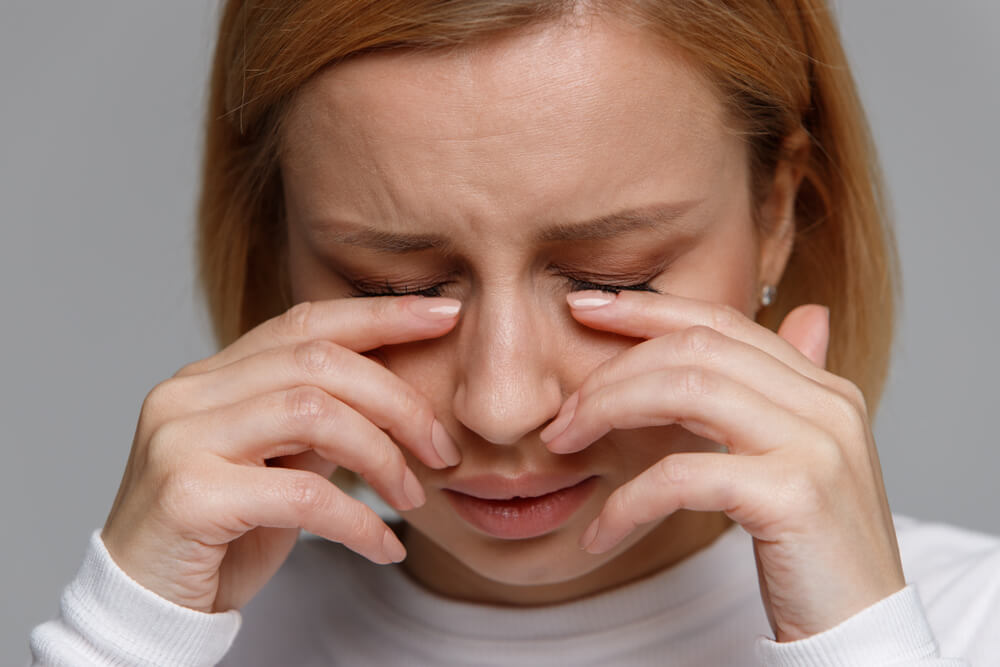
Like its name suggests, dry eye is a condition where the eyes are drier than they should be. This can be because they don’t make enough tears or the tears they do make evaporate too quickly.
The signs and symptoms of dry eye usually affect both eyes and can include itchiness, redness, a burning sensation, watery eyes, heavy feeling eyes, blurry vision, a gritty feeling, sensitivity to light and eye strain.6,7
Fun fact
1 in 12 people in the UK and Ireland wear contacts – and daily disposables are their firm favourite!8
Why do contact lenses dry your eyes?
It’s all about oxygen!
Our eyes need to breathe to stay healthy and they grab oxygen from the air around them. The oxygen then enters the eye through the cornea – the clear bit that covers the coloured part of your eye and your pupil.9
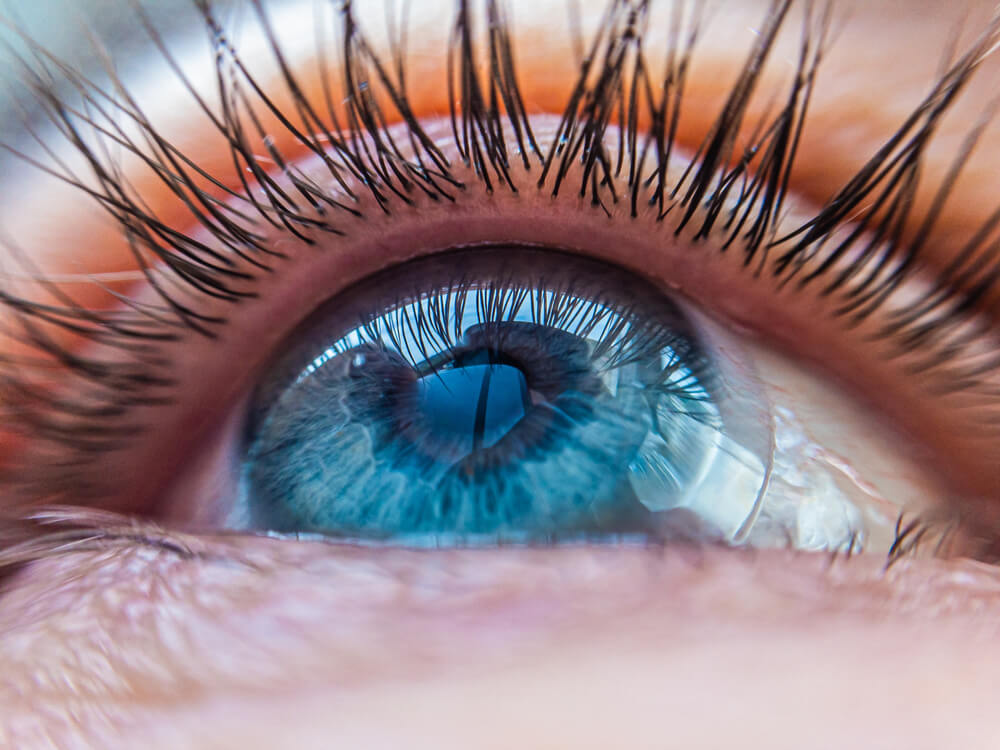
But contact lenses sit on the cornea – and so can stop the oxygen in its tracks.10
Contacts can also stop our tears from working properly to keep our eyes nice and moist. This means our contacts can chafe a bit – leaving our eyes feeling dry and uncomfortable.11
Can I wear contact lenses with dry eyes?
If you have dry eyes, whether they are caused by your contacts or something else (maybe you haven’t been getting enough sleep12 or work’s so busy that you barely get a break from your computer screen6), wearing your contacts might be the last thing you want to do.
But not all contacts are the same. Why not see if another type works better for you?
Which contact lenses should I wear if I have dry eyes?
There are lots of things you can try here. Look at:
- The material your lenses are made from. Soft lenses tend to be better for dry eye and ones made from silicone hydrogel let more oxygen pass through and so may be particularly comfy.13
- How much of the lens is made up of water. Contact lenses have different water contents (it’s given as a %) – and those with a high content might make dry eye worse.13
- The size of your lenses. Contact lenses are normally just big enough to sit on your cornea – the clear bit that covers the coloured part of your eye and lets oxygen in. Special lenses called scleral lenses are bigger and sit on the white of your eye, without touching the cornea,14 and so you might find them comfier.1
Your optician will be able to tell you more about your options and help you work out which type of lens suits you best.
Top tip
Mix it up! Let your contacts do their work while you sleep. Unlike normal contacts, which should be taken out before bed, Ortho-k lenses are designed specifically to be worn overnight. While you’re fast asleep, they’re hard at work very gently reshaping the front of your eye to help you see better when you wake up. Best of all, because you are tucked up in bed with your eyes tight shut, your eyes might dry out less when wearing them.4
Are daily contact lenses better for dry eyes?
They can be. Make-up, grease, grime and other nasties that cling to contacts over time can make our eyes dry and scratchy. But, if you pop in a new pair of daily disposables each morning, you are starting afresh each day.14
Other ways to stop dry eyes with contact lenses
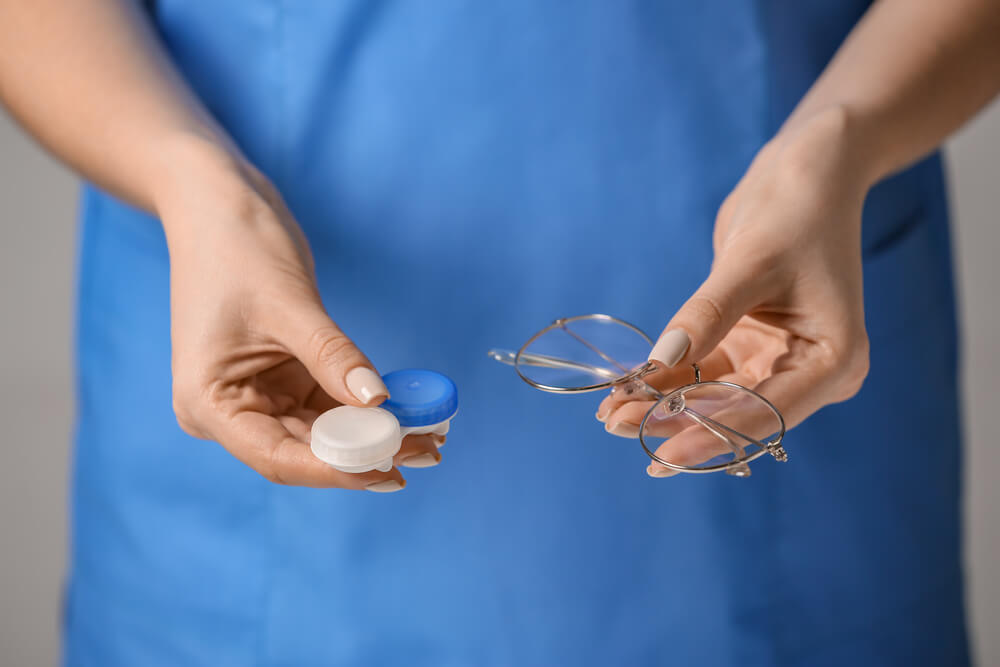
It’s not all about the lenses. There are lots of other things you can try to make it easier to wear contacts if you have dry eye.
Why not try:
- Going preservative-free. Some contact lens solutions have preservatives to prolong their shelf-life once opened but these chemicals can irritate eyes, especially when dry eye is severe and preservative-free cleaning fluids can be gentler.15
- Checking you are using the right contact lens solution. Some contact lens solutions work better with some types of lens than others – special solutions have been developed, for instance, for silicone hydrogel lenses.4 This means that if you’ve been using the same brand for years and years, it might not be the best match for your super-duper new lenses. Why not check with your optician whether changing your contact lens solution could be the solution to your dry eyes?
- Reaching for rewetting eye drops. These are specifically designed to be used with different types of contacts and, popped in before you pop in your lenses, they can make them more comfortable to wear.1
- Keeping an eye on the time. Change your lenses as recommended.1 If you wear dailies, throw them away each night. Remembering when two weeks or a month is up can be trickier though, so putting a reminder in your diary might help if you wear these lenses.
- Switching to your glasses for a few hours a day or once a week to give your eyes a bit of a break.6
Did you know?
Leonardo de Vinci is credited with coming up with the concept of contact lenses in 1508 – around the time he was painting the Mona Lisa.16
Can you use eye drops with contact lenses?
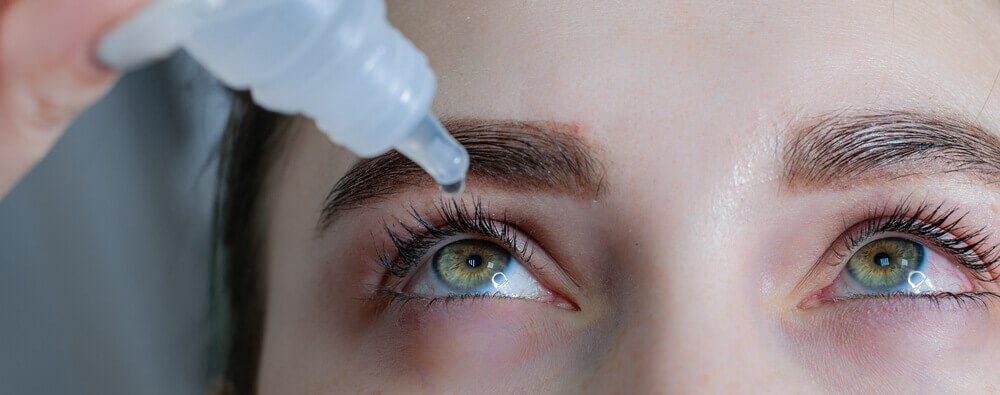
Not all types of eye drops work well with contacts. Some dry eye drops, for instance, are thicker than others and can cloud your vision or damage your contacts.17 If in doubt, ask your optician for advice. Oh, and remember to remove your contacts before putting your eye drops in, unless your doctor or pharmacist advises otherwise.18
How to treat dry eyes for contact lens wearers
There are lots of things to try here. Some of them will likely suit you – and your contact lenses – more than others, so why not see what works for you?

You can try topping up your tears.19 Eye drops, such as Cationorm®, can replenish your body’s supply of tears, rehydrate and quickly relieve discomfort, particularly if your symptoms are mild.
And small changes to your lifestyle can help stop your tears from drying up too quickly. Tips to make the most of your own tears include:
- If your make-up is irritating your eyes, you might find that hypoallergenic products suit you better.20
- Check the leaflet of any medicine you are taking to see if it can cause dry eyes. Don’t stop taking it without speaking to your doctor first, though.21
- Stress may be linked to dry eyes,22 so make time for some me time.
- Try to avoid dry and windy places – and adjust the air vents in your car, so that they aren’t blowing air right at your face.23,24
- Take breaks when looking at screens – try following the 20/20/20 rule. Give yourself a 20-second from your screen every 20 minutes and look at something 20 feet away.25
Don’t forget to ask your optician for advice – it’s likely that lots of their patients have dry eye and they will have lots of advice on how you can treat it and keep wearing your contacts comfortably.
Top tip
Take a blinking break! Blinking coats eyes with tears, which helps stop them from getting too dry, but we blink less when we are staring at a screen.25 So, when you’re working on your computer, or even just watching TV, take time to blink. Every now and again, just fully open and close your eyes – it’s easy to do and could make a real difference.26


